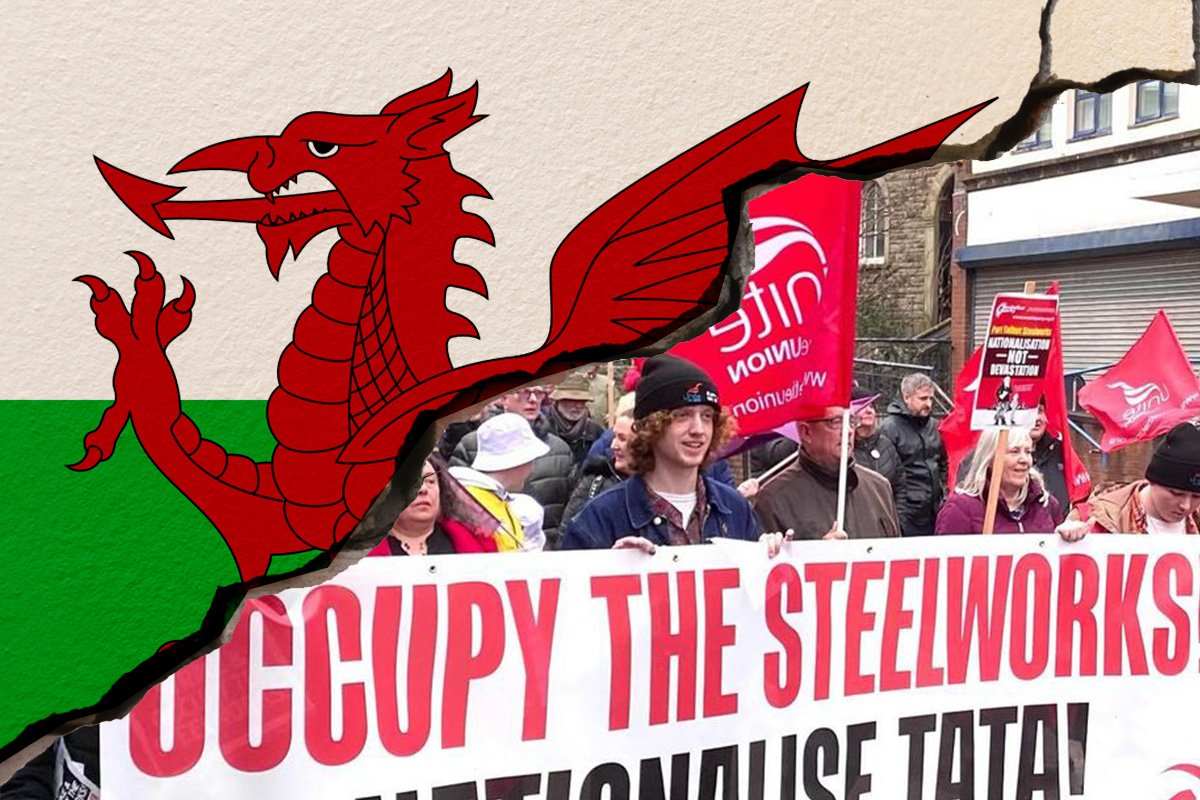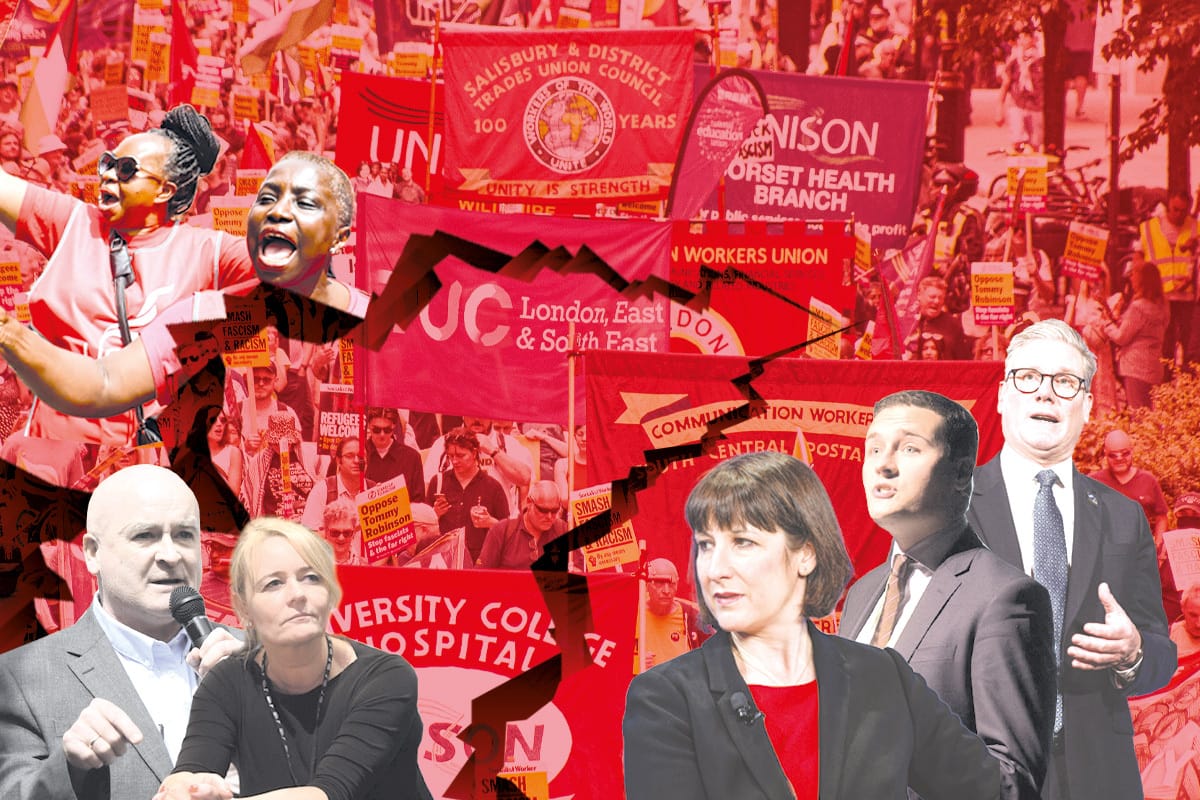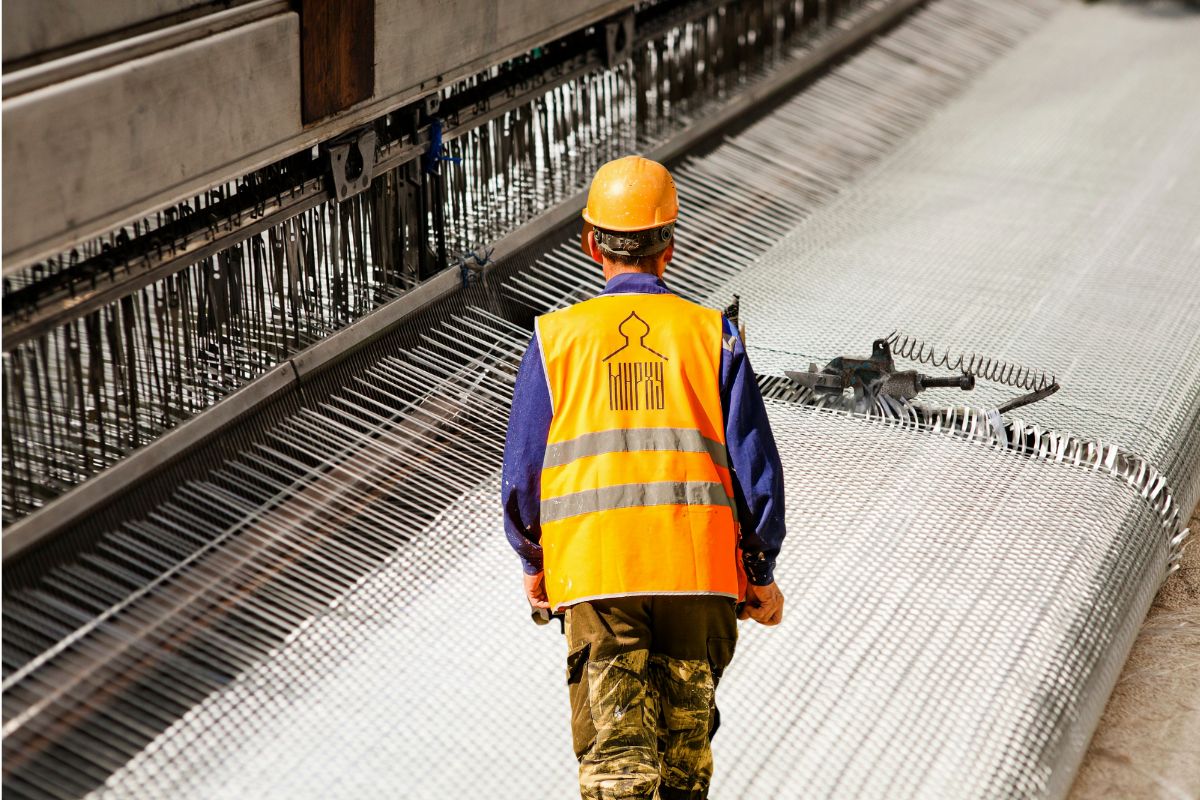From Keir Starmer demanding the release of the “sausages”, to the ongoing freebies scandal, to repeated protests from the floor against the leadership’s unwavering support for Israel’s bloody escalations in the Middle East: this year’s Labour Party conference was not quite the smooth, triumphal affair that the new government were hoping for.
Labour came to power promising that they would bring the much-needed stability that British capitalism requires. Instead, their first 100 days in power have mostly been defined by scandals, on the one hand, and popular disgust on the other.
Cracks emerging
On top of all this, the Labour leadership found itself picking a fight with the trade union leaders, principally over the government’s decision to cut pensioners’ winter fuel allowance.
The showdown came on the last day of conference, when a non-binding vote against this austerity measure – after several deliberate delays – was won by the unions.

This tokenistic vote, in and of itself, is nothing much. But the fact that such acrimony developed over it suggests that there is huge anger amongst rank-and-file union members.
The union leaders are acting under pressure, in response to these moods. Even Unison, whose right-wing leader Christina McAnea backs Starmer completely, has shown some resistance to Labour’s energy subsidy cut.
These careerists can sense which way the wind is blowing. They know that they need to at least pay lip service to opposing austerity. Otherwise, workers will draw sharp conclusions about such leaders, and they may find themselves flung out of office down the line.
Betrayals and tremors
Workers have already suffered greatly from 14 years of Tory austerity. And they are in no mood to see their elderly relatives go cold this winter – especially under the auspices of a ‘Labour’ government.
This sense of betrayal is reflected in other sectors, too. And prevarication by Starmer and co. about what exactly Labour’s so-called ‘New Deal for Working People’ will actually provide – if and when it’s passed – will do nothing to improve trust, either.
This mood also explains the recent vote by RCN members to reject the government’s 5.5 percent pay deal, which could set a precedent for other public sector workers.
The RCN leaders should have used this to call an immediate strike ballot. Instead, they have opted for more negotiation, appealing to Labour ministers to come back with a better offer.
Nevertheless, both the Labour and trade union leaders can feel the tremors beneath their feet. The subterranean mood of anger that produced the strike wave of 2022-23 has only grown stronger. And sooner or later it will find an outlet.
Collaboration or militancy?
The trade union leaders are caught between a rock and a hard place. They would like for Starmer’s Labour to provide them with some more substantial scraps, in order to keep members sated and subdued. But the cupboard of British capitalism is bare.
Hence these early beginnings of opposition amongst the unions to Labour’s policies – in words, at least, if not in deeds.
At the same time, the union leaders are still stuck in the past; pursuing a conservative, class-collaborationist approach that only helps to bring about the very disasters that their ‘pragmatism’ is supposed to ‘solve’.
For evidence, we can look to the fiascos at Port Talbot and Grangemouth, where ‘waiting for Labour’ has led to job massacres. A similar situation is now playing out in Harland & Wolff in Belfast.
Elsewhere, crises in the public sector continue to mount. More council bankruptcies – like that in Birmingham – loom. And in higher education, many universities may follow suit, as revenue sources run dry.
Sticking to the old ways, further job losses are inevitable. A change of course is needed. Militancy – not moderation – in the face of these crises is the only way our class can defend itself.
Earthquakes ahead
 Starmer is already despised by workers. And he will become even more hated, as his big business government carries out further attacks on workers in the name of ‘economic stability’ (read: stability for the bosses and bankers).
Starmer is already despised by workers. And he will become even more hated, as his big business government carries out further attacks on workers in the name of ‘economic stability’ (read: stability for the bosses and bankers).
But there is nothing stable about capitalism right now. Shock after shock is already buffeting the system, with global crises making themselves felt in Britain. Netanyahu’s escalating conflict in the Middle East is just one of many earthquakes shaking capitalism’s foundations.
Faced with this onslaught, industrial militancy will be on the order of the day, as workers move to defend themselves.
But for this anger and determination to find its fullest expression, fighting leadership is needed.
Instead of placing hopes in Starmer’s Labour, the union leaders should be organising rank-and-file members in every workplace, discussing the best ways to fight this government, and preparing for the battles that impend.
Above all, in contrast to Labour’s proposed austerity, the case must be made for a thoroughgoing socialist programme, with calls to expropriate the super-rich and nationalise industries threatened with closure.
Only on this basis can organised workers turn the tide.
After the Port Talbot betrayal: What next for Welsh workers?
Maciej Krzymieniecki, Swansea RCP
It’s official: Tata has now closed down the last blast furnace in Port Talbot, spelling long-expected ruin for thousands of workers. According to one study, 80 percent of redundant workers will end up in jobs with worse pay and conditions.
Labour’s treacherous policies, combined with the union leaders’ conservative approach, have made this possible. The evidence is clear: these reformists cannot be trusted.
This is not the end of the road for workers in Wales, however. Far from it. The bosses’ attacks are only becoming more vicious. And there is still plenty of fire left in workers’ bellies.
Following the death of heavy industry in Wales, many people have been forced to work in super-exploitative jobs in the service sector and smaller manufacturing industries, where bosses constantly break employment laws in order to squeeze the workers for all they can. As a result, discontent is widespread.

In Wrexham, for example, Oscar Mayer food factory workers have been on strike for weeks against the employers’ attempts at ‘fire and rehire’. Hundreds of workers have been flooding onto the picket lines.
In Llanelli and Ammanford, meanwhile, car parts factories are currently preparing to join the fight, balloting for strike action over poverty pay.
Pullmaflex Ammanford, who manufacture car seats, and whose strike ballot result is expected imminently, are notorious for their brutal 11-hour night shifts. In the face of this, below-inflation pay rises must feel like a slap in the face for these workers.
The Labour Party’s upcoming austerity budget will tip millions of workers over the edge. This is especially true in Wales, which suffers some of the worst levels of deprivation.
Our class therefore faces a choice: an unbearable life, or militant action to defend living standards.
Labour’s plan to make workers pay
John Russell, Unison Norfolk County Branch (personal capacity)
Earlier this year, a migrant farm worker in Norfolk took a case to the Gangmasters and Labour Abuse Authority (GLAA) against both an agency and a private employer who subcontracted his labour.
Shockingly, the GLAA did not conduct an external investigation themselves, but allowed the agency to conduct an investigation of the private employer on their behalf! Unsurprisingly, the agency’s investigation found no wrongdoing whatsoever by their business partner.
Today, Labour’s plans to tackle Britain’s scourge of super-exploitation and modern slavery include setting up a ‘Fair Work Agency’. This would merge existing enforcement bodies such as the GLAA and the Employment Standards Agency Inspectorate.
Evidently, however, these bodies are already toothless. Britain currently has less than half the number of workplace inspectors needed to meet international standards. Meanwhile, Labour has not outlined plans for any increase in funding.
Even columnists of the Financial Times note that “the rules could end up pushing workers into less regulated corners of the labour market”.
The agriculture and textile sectors are already rife with illegally super-exploited workers. The GLAA clearly does not play an effective role. And now the FT suggests that the government’s new body would be even weaker in this regard!
In reality, British capitalism relies on the super-exploitation of these workers. Tackling the problem too seriously would upend the apple-cart for big business – something that Starmer has no interest in doing.
So long as we’re forced to play the game by the capitalists’ rules, no amount of restructuring will fundamentally fix the problem. When it comes to workers’ rights, only the collective power of the organised working class can be relied on!






